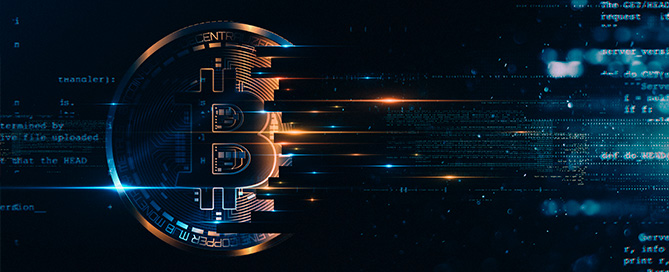The question regarding the nature of cryptocurrency has been the subject of case-law debate and entrenched postures, especially regarding whether it should be considered money or currency. The Spanish Supreme Court, via a judgment derived from criminal proceedings, addresses this issue and comes to establish that cryptocurrency is not a material object, neither does it have the legal consideration of money, following the interpretation adopted previously in other European countries.
The aforementioned judgment of 20th June 2019 studies the case of a few small investors who undertook high frequency trading contracts with a company which promised to handle the Bitcoins held in deposit, which were the property of each of said investors, to reinvest potential dividends and to hand over the profits gained to the investors upon the expiry of the contract, in exchange for a commission. The high frequency trading (HFT) contracts are based upon negotiation in financial markets using technology for obtaining market information, executing numerous purchase and sale orders via computer algorithms, in short spaces of time. However, no amount was handed over to the contracting parties once the agreed upon time had passed, which generated a lawsuit for the continued offence of fraud and undue appropriation pursued by the defrauded investors.
In this article we are not interested in the aspect of non-fulfilment on the part of the agent company, but rather the civil issue, that is to say the asset liability of the agent company to the investors. The fact is that the investors lost their legal tender money, which was handed over to the agent so that it could be converted into Bitcoins, and their claim in their lawsuit was for the defendant to compensate them by returning Bitcoins, rather than the money initially handed over to the defendant. It is important to underline that the investors did not hand Bitcoins over to the agent, but instead legal tender money which had to be subsequently converted into Bitcoins. Therefore, it cannot be said that as a consequence of the fraud, the investors had been robbed of Bitcoins which should be returned to them, although it is clear that they suffered asset damage given that the agent company did not perform any HFT contract, neither did it return the invested amount upon the expiry of the contract.
Insofar as the nature of cryptocurrency is concerned, the Supreme Court considers that the Bitcoin is not something susceptible to return given that it is not a tangible object, neither does it have the legal consideration of money. On the contrary, the court defines it a “unit of account of the network of the same name” which, in a closed number of 21 million units, “is marketed in a divisible manner through a verified computer network”.
Thus, it concludes by saying that the Bitcoin is an intangible asset, in the form of a unit of account defined via computer and cryptographic technology which is called “Bitcoin”. The value of a given unit is that reached by the supply offer and the demand which are met on the Bitcoin trading platforms, so that there is no world or standard price.
As a consequence, we must extend the consideration of the Bitcoin to other cryptocurrencies, the court says that it is an intangible asset of consideration or exchange in any transaction, duly accepted by the contracting parties, but it is not a conventional currency or money, not even electric money. The latter is defined as a monetary value stored by electronic or magnetic means which fulfils the following requirements: (i) it represents a claim on the issuer; (ii) it is issued upon the receipt of funds with the purpose of performing payment operations; and (iii) it is accepted by a natural person or legal entity, different from the issuer. Since it is neither an analogue nor an electronic currency, Bitcoin may only be defined as a concept of an intangible asset with a variable value, also susceptible to barter or exchange for goods (including legal tender money) or services.
Based upon the foregoing, the Supreme Court concludes that it is not possible to repay the investors with Bitcoins, instead the damage must be repaired by compensation and returning the amount invested (in legal tender money) with an increase for the loss corresponding to the profitability of the price of the Bitcoin units between the time of the investment and the date of expiry of the respective contracts.
Eduardo Vilá
Vilá Abogados
For more information, please contact:
10th January 2019



